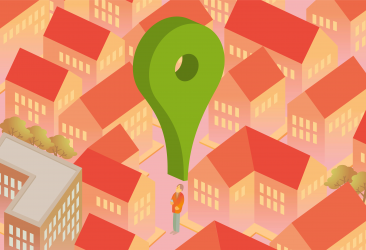
The University of Wisconsin-Madison and its partners have a wealth of resources available for campus researchers, including everything from grant support, software, and writing assistance to data visualization and management and outreach programs and much more. All of these resources can be found independently, spread across the UW website. Some existing sites list the resources available for specific roles at the university, for example, graduate students, faculty, and research staff.
im
“Strangely,” says Em Craft, the Research IT Coordinator at Wisconsin Institute for Discovery, “there isn’t anything that breaks down a research project phase by phase.” With the goal of creating a centralized directory of research resources, Craft – with the support of others at WID and the UW-Madison Advanced Computing Initiative – has built the Research Project Resource Guide (RPRG), a single site that brings together the expertise of resource providers across campus into one access point. According to Craft, those providers are excited about the guide because presently, “they don’t have a way to tell people, ‘we’re here, this is how we can help you.’”
“We want people to suggest resources on campus they find useful.”
-Em Craft
The RPRG can help both new and seasoned researchers with every step along the way in the research process. The new site, which was unveiled on Monday, features three main sections corresponding to the three major phases of a research project: initiation, execution, and completion. Within each section, resources and information for various steps can be viewed in a unified interface. The intuitive and aesthetic design is intended to make the process of finding relevant resources less frustrating and more pleasant and efficient.
 The guide is useful at any level of expertise, experience, or familiarity with campus research, but is particularly beneficial for recent arrivals on campus like new graduate students, post docs, and new faculty. At the same time, if researchers know precisely what they are looking for, the RPRG makes it easy to find familiar resources. Along the way, they may also find new contacts, information, software, or equipment that facilitate further discoveries. In this way, the RPRG serves not only to make the research process more streamlined, but also to put valuable resources into the hands of researchers who may not otherwise find and utilize them.
The guide is useful at any level of expertise, experience, or familiarity with campus research, but is particularly beneficial for recent arrivals on campus like new graduate students, post docs, and new faculty. At the same time, if researchers know precisely what they are looking for, the RPRG makes it easy to find familiar resources. Along the way, they may also find new contacts, information, software, or equipment that facilitate further discoveries. In this way, the RPRG serves not only to make the research process more streamlined, but also to put valuable resources into the hands of researchers who may not otherwise find and utilize them.
The current site, however, is not a finished project. Though the RPRG will soon be promoted campus-wide, Monday’s rollout focused on researchers at WID. Craft hopes that feedback and input from those who begin using it will make the guide a more complete and effective tool. “Once this starts getting used, we want people to suggest resources on campus they find useful.” As more resources are included and the site is optimized based on user input, the RPRG will be introduced to the broader research community on campus. Says Craft, “the goal is to have [the RPRG] in all sorts of places.”
You can check out the Research Project Resource Guide today at rprg.wisc.edu.
Have a resource to add? Send a link you think should be included.
-Nolan Lendved


You must be logged in to post a comment.